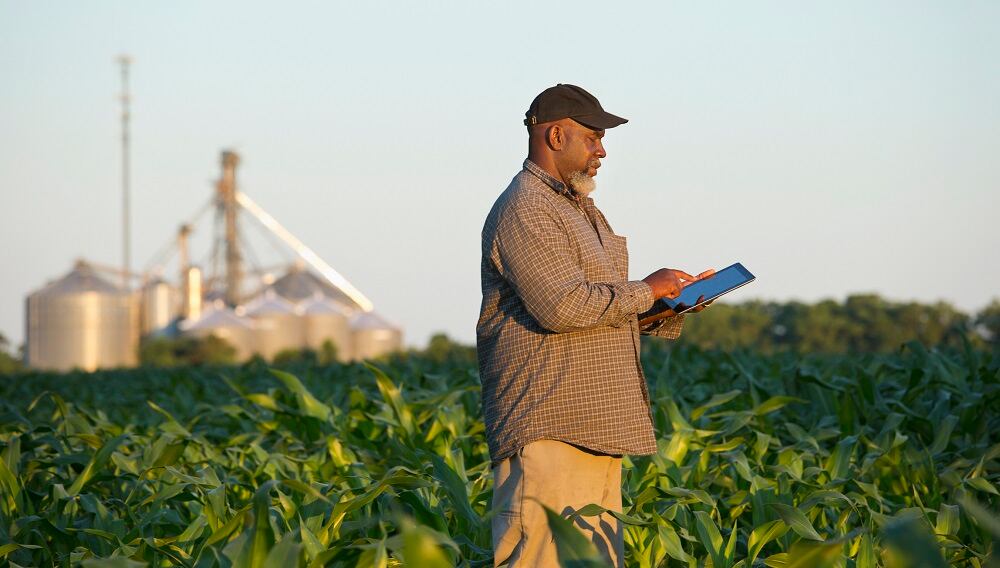The multi-year roadmap to expand the Eco-Harvest program will focus on farmers and farmland in the US and Canada where General Mills sources key ingredients including wheat, oat, corn, and dairy for its products.
The program is supported by an initial $3m investment from General Mills to support the launch and development of Eco-Harvest and funds to scale regional farming programs.
Operating as a voluntary market program, Eco-Harvest generates and sells credits for sustainable farming practices including reduced greenhouse gases and improved water quality.
In 2019, ESMC received a $10.3m grant from FFAR, which was matched by ESMC and its members, forming a public-private partnership with a total investment of $20.6m to fund research and development of the program.
With the funds and research, ESMC launched its Eco-Harvest market program in May 2022, an end-to-end digital and advanced technology platform capable of generating verified third-party credits for sustainable farming practices such as soil carbon removal, avoided and reduced greenhouse gases, and water impacts of US farms.
With Eco-Harvest, the ESMC stated its goal of enrolling up to 500,000 acres of US farmland in the program by 2025 and is currently active in several major US farming regions growing corn, soy, wheat, and alfalfa crops.
“We have spent more than three years building, testing, and refining our program. Now, we can scale impacts to not only pay farmers but also tap the interest from companies like General Mills, along with investors and consumers who are seeking transparent and meaningful actions," said Debbie Reed, ESMC executive director.
Success with Eco-Harvest
In 2020, General Mills and the Kansas Department of Health and Environment piloted a project with ESMC to reward farmers for improving soil health on their land, through techniques such as using cover crops and reducing tillage. The pilot project was then made available to Kansas wheat farmers participating in General Mills’ regenerative agriculture program who also tested ESMC’s protocols and processes.
Twenty-one farmers participated, opting into data tracking and field measurements. In October 2021, the participating farmers were paid for their improved ecosystem services and made plans to continue with the program in 2022.
“We see the efforts from General Mills over the past handful of years, including the curiosity and ambition to move the whole system forward,” said Alex Boersch, a Canadian farmer and owner of Re-Gen Ag Solutions Inc.
Beginning next month, ESMC will share regional Request for Proposals (RFPs) to identify organizations who can provide technical assistance, farmer enrollment support, and soil carbon sampling. Those organizations will be selected in August and soil sampling will occur in Spring of 2023, setting a baseline for eventual credit generation for participating farms.
General Mills & regenerative agriculture ambitions
“As a founding member of ESMC, General Mills is proud to expand its partnership and reward farmers for the quantifiable impact they’re having on the environment by advancing regenerative agriculture,” said Mary Jane Melendez, chief sustainability and global impact officer, General Mills.
“As a non-profit, ESMC gives us confidence that the greatest possible value will go to the farmers. Also, no other market program offers the same scientific rigor and outcomes-based protocols that ESMC delivers, ensuring the credibility of soil carbon removals or reduced greenhouse gas emissions for reporting," claimed Melendez.
In 2019, General Mills made a commitment to covert 1 million acres of land to regenerative agricultural practices by 2030, stating that regenerative agriculture "is the biggest lever" in reducing its overall climate impact. So far, the company has converted approximately 115,000 acres of US farmland (split between row crops and dairy farms) to regenerative agricultural land management programs.
This recent investment and partnership with ESMC will help accelerate the company's regenerative agriculture vision, ambitions to reduce greenhouse gas emissions by 30% by 2030, and achieve net-zero emissions by 2050.
"General Mills is inviting supply chain partners and other companies that source from these same regions to collaborate on this effort to have the greatest impact," she added.

